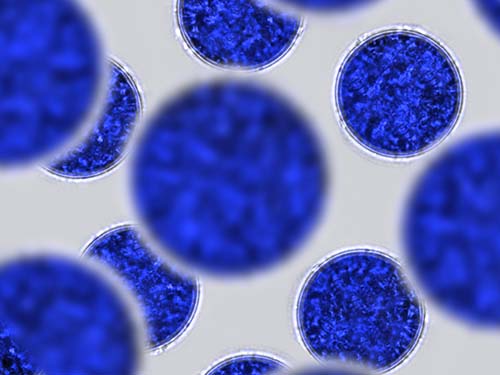The microbiome is the collection of all microbes, such as bacteria, fungi, viruses, and their genes, that naturally live on our bodies and inside us. Although microbes are so small that they require a microscope to see them, they contribute in big ways to human health and wellness. A person’s core microbiome is formed in the first years of life but can change over time in response to different factors including diet, medications, and environmental exposures. The Canadian Institutes of Health Research funded three projects to consider the interaction between the environment and the microbiome and its impact on human health. In this webinar, learn what this research has discovered and where the investigators plan to go next.
About the Projects
Elucidating the Gene-Environment Interactions that drive Autoimmune Disease among South Asian Canadians – The GEMINI Program
The GEMINI project (Generational differences in Environmental exposures caused by Migration: Impact on Incidence of inflammatory disease) studies a growing concern in South Asian Canadian communities – these communities are experiencing an increase in incidences of chronic inflammatory disease upon exposure to the North American environment.
Programmatic research to understand how modifiable environmental factors interact with the genome in the development of asthma
It isn’t clear why some people get asthma and others don’t, but it’s probably due to a combination of environmental and genetic (inherited) factors. The goal of this research program is to understand these environmental and genetic factors that cause asthma. This new understanding is expected to give us better tools to predict who will get asthma and to develop ways to prevent asthma developing in the first place.
The impact of the gut microbiome and environment on the development of colorectal cancer
This team of international recognized researchers investigates the role of bacteria that reside in the gut in the development of colorectal cancer. The previous and proposed research from this team show that gut bacteria is at the root of colorectal cancer; its manipulation of dietary nutrients such as complex carbohydrates and the subsequent impact on metabolic processes within the gut promotes the development of colorectal cancer in mice and humans that are genetically-predisposed to develop this disease. The research has the capacity to develop diagnostics if a specific bacterial species is identified as the causative agent in colorectal cancer. In addition, the research will lead to the development of preventative protocols for colorectal cancer using alterations in diet or specific antibiotics that displace or out-compete “pathogenic” strains.
About the Speakers
Elucidating the Gene-Environment Interactions that drive Autoimmune Disease among South Asian Canadians – The GEMINI Program
Jen Gommerman, PhD, is Professor and Canada Research Chair in Tissue-specific Immunity Department of Immunology, Temerty Faculty of Medicine, University of Toronto. Jen received her Ph.D. (Immunology) at the University of Toronto in 1998. She went on to do a post-doctoral fellowship at Harvard Medical School studying the complement pathway and then joined Biogen Inc. as a Staff Scientist in 2000. During her tenure at Biogen, she became interested in B cells, Multiple Sclerosis and the TNF superfamily of molecules. After 3 years in Industry, she returned to Academia as an Assistant Professor (Immunology) at the University of Toronto in 2003, in 2015 was promoted to full Professor, and in 2020 was awarded a Tier I Canada Research Chair in Tissue Specific Immunity. Jen’s basic research continues to focus on how members of the TNF superfamily of molecules regulate immunity and autoimmunity, particularly in the mucosae. Her team has uncovered a novel gut-brain axis that regulates neuroinflammation. With respect to translational work, Dr. Gommerman has been examining the role of B lymphocytes in Multiple Sclerosis patients and in animal models of MS and how environmental factors shape the microbiome.
Programmatic research to understand how modifiable environmental factors interact with the genome in the development of asthma
Stuart Turvey, MBBS, DPhil, FRCPC is a Professor of Pediatrics at the University of British Columbia where he holds both the Tier 1 Canada Research Chair in Pediatric Precision Health and the Aubrey J. Tingle Professorship in Pediatric Immunology. He is a Pediatric Immunologist and clinician-scientist based at BC Children’s Hospita. Prior to coming to Vancouver, Dr Turvey completed both his Pediatric Residency and Allergy/Immunology Fellowship at Children’s Hospital, Harvard Medical School, Boston. He holds a medical degree (MB BS) from the University of Sydney, Australia and a doctorate (DPhil) in Immunology from Oxford University where he was a Rhodes Scholar. Dr Turvey is a Fellow of the Royal College of Physicians and Surgeons of Canada and a Diplomate of the American Board of Pediatrics.
The impact of the gut microbiome and environment on the development of colorectal cancer
Dr. Alberto Martin is Professor of Immunology at the University of Toronto. His research interests are in adaptive immunity, cancer immunology and B cells. His lab conducts research in three main areas, each of which is supported by external research funding: AID in antibody diversification, The molecular basis for germinal center selection & The molecular mechanisms of cancer development (i.e. specifically colon cancer and lymphoma).










